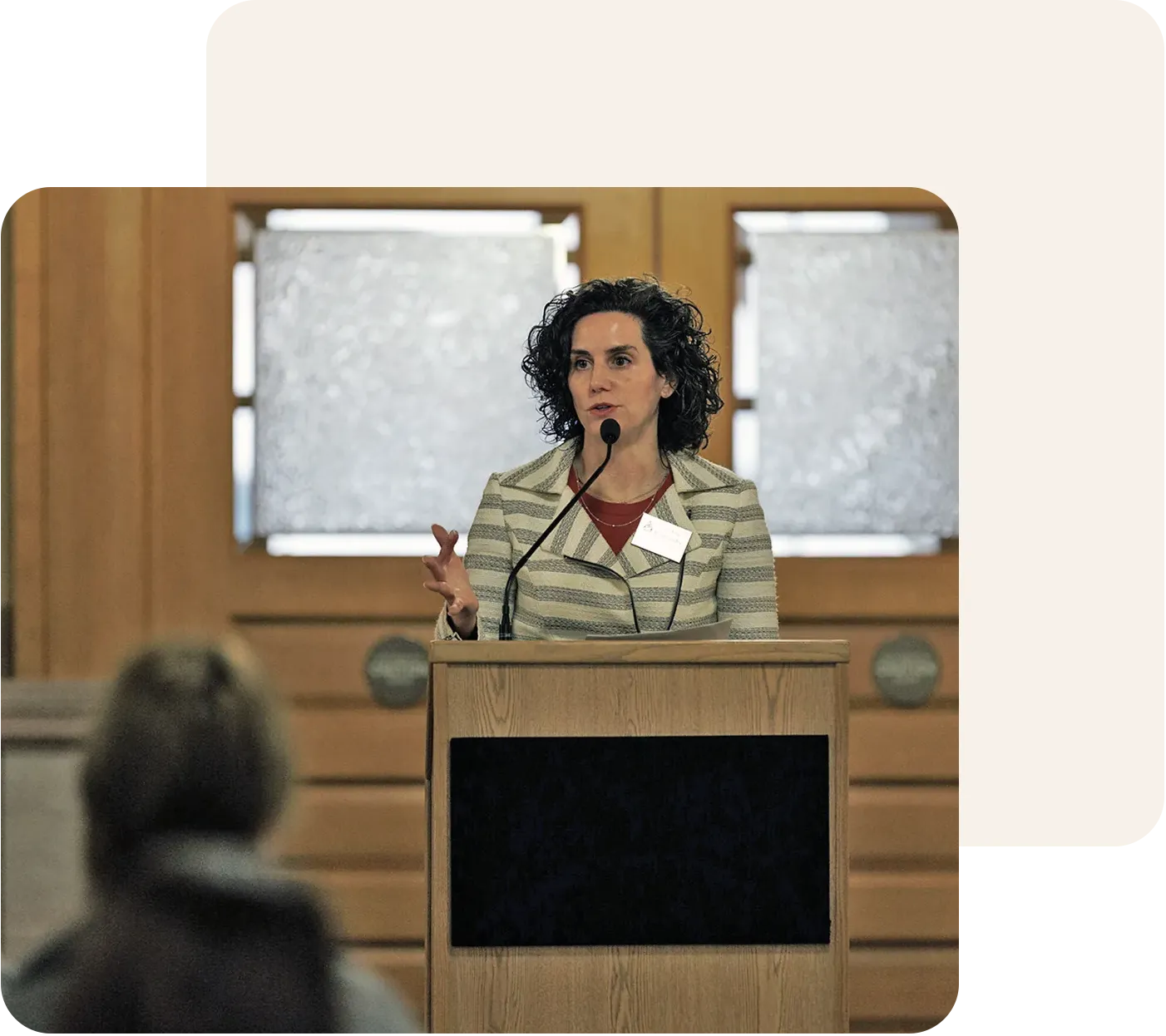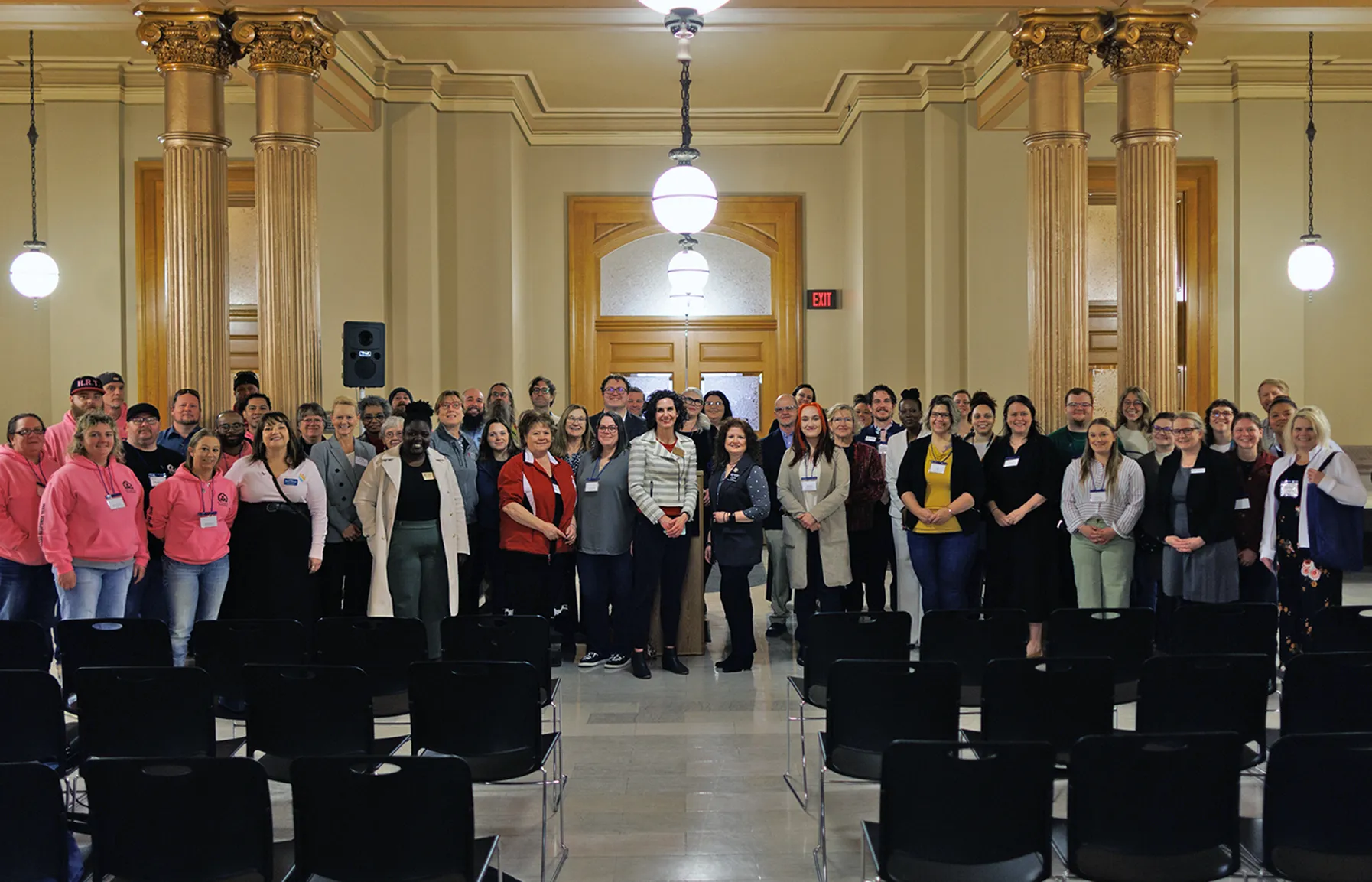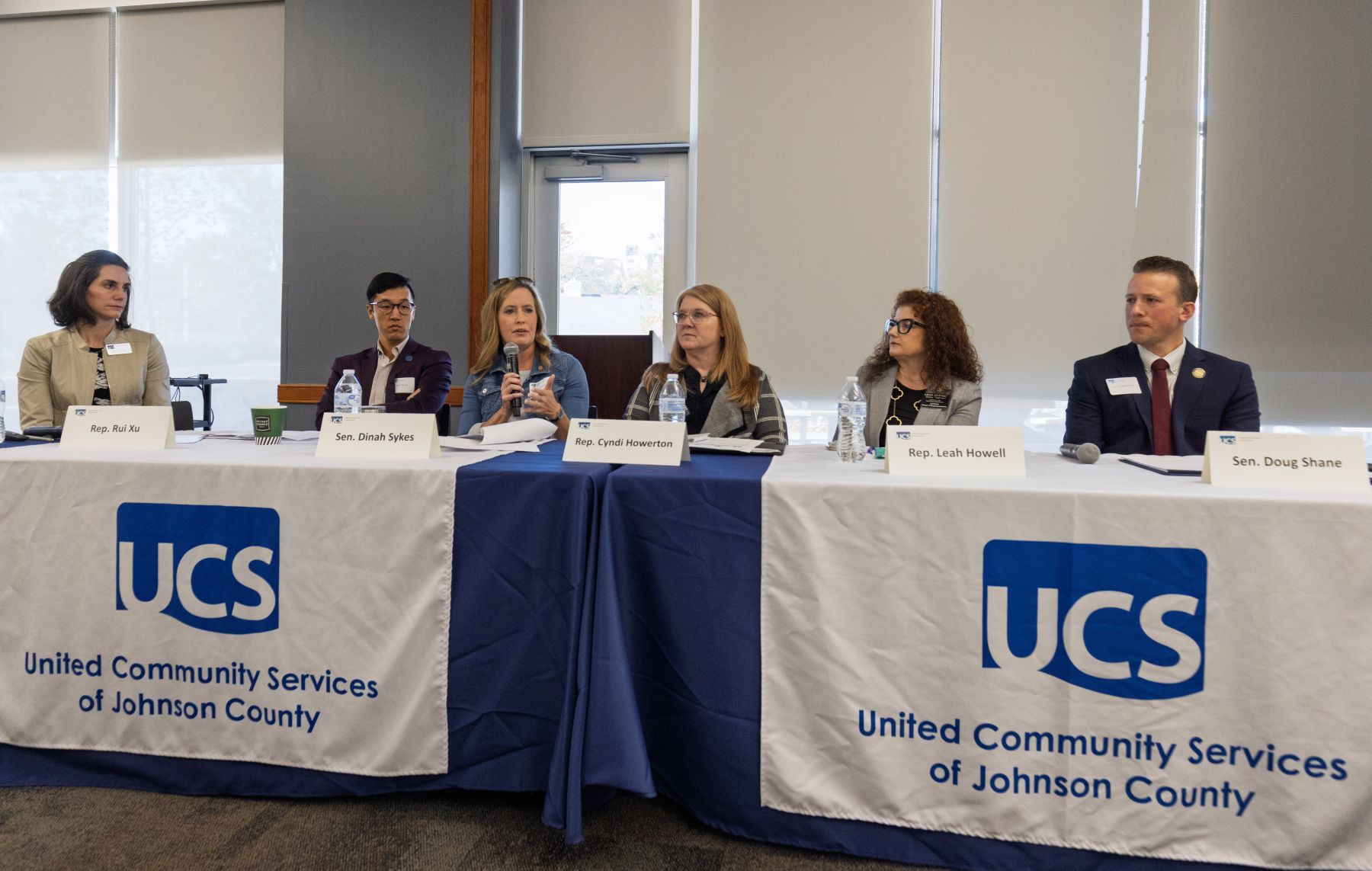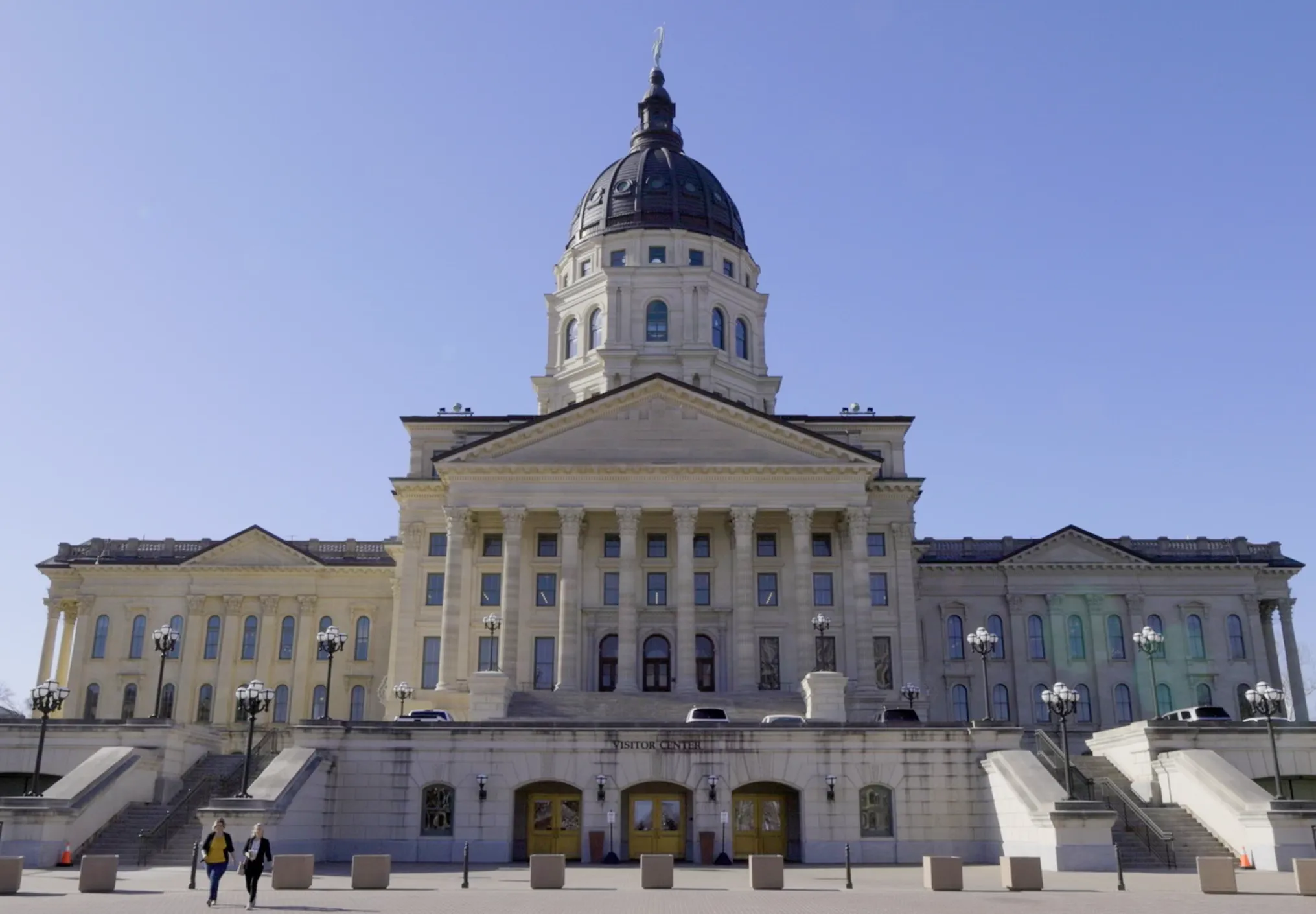PUBLIC POLICY ADVOCACY




EVENT SPOTLIGHT: PUBLIC POLICY FORUM
LOCAL PUBLIC POLICY PRIORITY POSITIONS
- Review and modify ordinances and update comprehensive plans to eliminate barriers to diverse housing options.
- Incentivize affordable housing by sharing risk, reducing market gaps, eliminating development code uncertainties, and streamlining approvals for small lots, townhomes, and middle-density housing.
- Preserve and rehabilitate existing housing.
- Continue the successful 10th District Eviction Mediation program with rental assistance to stabilize households and property owners.
- Support a year-round non-congregant services center with intensive case management for adults experiencing homelessness in Johnson County.

KANSAS LEGISLATIVE PRIORITY POSITIONS
ECONOMIC STABILITY
Advance wage, housing, employment, taxation, health, and business retention and growth policies that support citizens ability to improve economic stability, achieve self-sufficiency, and address wealth disparities resulting from policy inequity:
- Support Job Benefits & Minimum Wage Increase
- Protect State Earned Income Tax Credit (EITC)
- Retain Tax Credits for Low-Income Families
- Update Income Eligibility and Benefits for Entitlements
- Increase Funding for Childcare Assistance
- Review Sanctions that Act as Barriers to Ending Homelessness and Maintaining Employment, Civic Engagement, and Economic Stability
TRANSPORTATION
Invest in Public Transportation: Increase investment to support local and regional transportation options that serve workforce needs as well as a means for access to education, healthcare and other basic services.
HOUSING
- Expand the Homestead Act and/or SAFESR to increase housing options for low-income seniors. Reauthorize state mortgage interest and property tax deductions. Maintain the Affordable Housing Tax Credit to support the construction of affordable housing.
- Dedicate a state revenue source for the Moderate Income Housing program and the State Housing Trust Fund for strategic rental assistance and maintaining affordable housing. Many older homes need modifications, repairs, and weatherization to ensure safe aging in place.
- Repeal barriers to affordable housing, such as KSA §12-16,120 (Mixed Income Housing) and KSA§12-16,138 (Inspection Restrictions).
- Allow eviction expungement and support full utilization of housing choice vouchers by incentivizing landlords, improving administration, and prohibiting discrimination based on housing choice vouchers.
HEALTHCARE ACCESS
Health impacts employment, productivity, academic achievement, and financial stability. Health insurance is crucial for good health and avoiding medical debt that leads to housing insecurity.
Expand KanCare (Medicaid) eligibility to provide affordable healthcare for healthy families and foster a productive economy: Maximize coverage for eligible Medicaid recipients under the ACA to help thousands of low-income, working people in Kansas access healthcare, support job creation, and protect healthcare providers.
WELL-BEING & SELF-SUFFICIENCY
Increase TANF support for core activities preparing recipients for work: The maximum monthly benefit for a family of four in Johnson County is $497, or $5,964 annually. A family would need five times this to exceed the federal poverty level. Kansas has failed to spend TANF funds, accumulating $62M in unspent funds. Cash assistance covers only ~50% of HUD fair market rent and hasn’t changed since 1996, representing a >47% decrease in inflation-adjusted dollars. Less than 2% of children living below the poverty level received TANF cash assistance in 2021.
Support internet solutions for low-income households: Household internet access is a necessary utility for low-income households to access education, telehealth, and employment.
YOUTH SUPPORTS
Improve child well-being & outcomes for youth aging out of foster care: Allow young adults aged 18-21 to re-enter the child welfare system if they leave foster care at 18. Ensure continuity in medical, behavioral health, and support services for youth exiting the Kansas Department for Children and Families. Enroll young adults under 26 in the Medicaid state plan. Extend out-of-home placement services until age 21.
FEDERAL LEGISLATIVE PRIORITY POSITIONS
SUPPORT HEALTH CARE ACCESSIBILITY
Affordable healthcare supports healthy families and a productive economy. Health impacts employment, productivity, academic achievement and financial stability. Health insurance is critical for ensuring good health, housing security, and sustainable economic growth.
INCREASE FEDERAL ALLOCATIONS TO TANF
Block grant funding to states has not changed since its creation in 1996. In every state, benefits are at or below 60% of the federal poverty level and have not kept pace with rising costs of housing.
SUPPORT FAIR & BALANCED IMMIGRATION POLICIES
Access to supports and services that enable immigrant families to become self-sufficient is vital to ensure an able and ready workforce, stable families, and healthy children prepared to learn and thrive.
